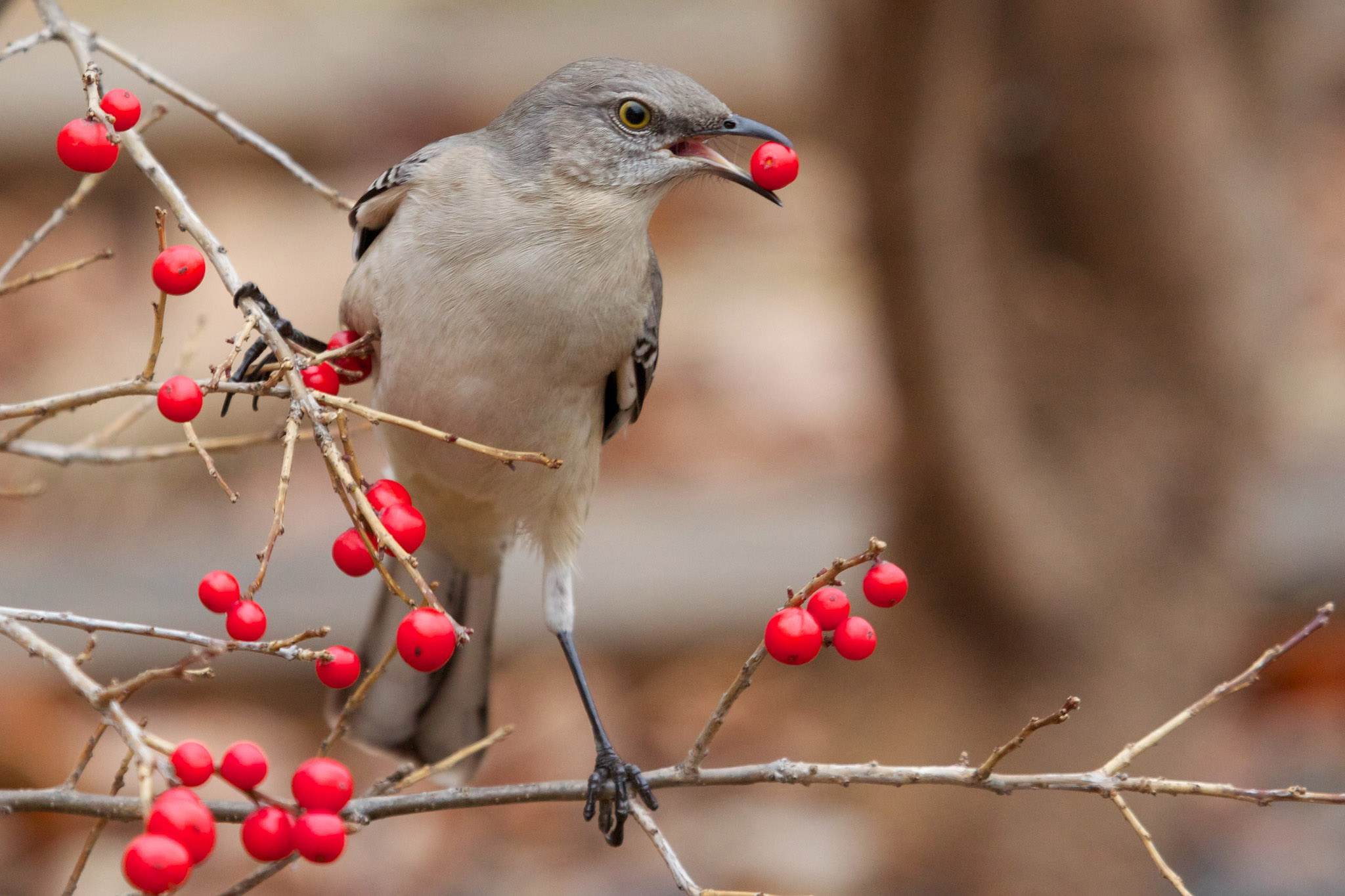Pat Jacobs’ four backyard bird feeders typically draw the usual suspects. But during a recent winter snowstorm, she looked out the large window of her home in Pittsburgh’s southern suburbs and saw—and heard—something out of the ordinary.
She knew just what it was.
“I grew up in South Texas, and mockingbirds are about as common [there] as robins are here,” Pat says.
But in 35 years, she’d never seen a northern mockingbird in Pittsburgh during the winter. So we tracked down someone who could shed a little light on this mockingbird mystery: Luke DeGroote, an avian ecologist and bird bander with the Carnegie Museum of Natural History’s Powdermill Nature Reserve.
LISTEN: “Why Mockingbirds are Choosing to Chill Here for the Winter”
Degroote told us that, in this region, we are on the border of where some birds will migrate, and some will stay put. So it’s not unusual for northern mockingbirds to stick around Pennsylvania during the winter. But not a lot is known about their migration. And the unseasonably warm start to this year’s winter may have caused Pat’s lone mockingbird to hang tight.
“They may be a species that more of them are choosing not to migrate south for the winter in warmer years,” Degroote says.
He says northern mockingbirds eat insects in the summer, but this time of year, they often go for something a little more surprising.
“Poison ivy berries are an excellent source of fruit for most birds,” Degroote says. “We typically have a negative association with them, but there are a lot of fat and proteins and antioxidants in those fruits.”
Regardless of the season, Degroote says Pennsylvanians can expect to see more mockingbirds than in decades past. The species was hunted pretty severely back in the 1800s, but their populations have rebounded since.
“It’s also because their populations have been increasing over time due to habitat changes,” Degroote says. “They really like suburban habitat, and there’s more and more of that as we continue to grow our urban and suburban areas.”
According to Degroote, one factor that’s likely not impacting the mockingbird’s expanded range—climate change. He says mockingbirds are generalists, and they’re pretty flexible about what they eat.
###
This story is part of our partnership with iSeeChange—an online almanac of weather and climate where people post photos, observations and questions about what they notice outside. If you’re like Pat Jacobs and see things out there that surprise you, post them to iSeeChange.org. We’ll help you dig up some answers.


